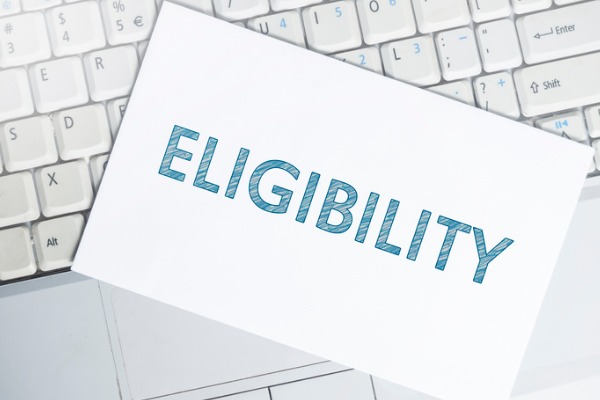
Why Study in Canada?
Before we delve into the requirements, it’s essential to understand why studying in Canada is an excellent choice. Here are some compelling reasons:- High-Quality Education: Canadian institutions consistently rank among the world’s best, offering top-notch education.
- Cultural Diversity: Canada is known for its multicultural society, making it a welcoming place for international students.
- Post-Study Opportunities: Canada provides attractive post-graduation work and immigration options, making it an ideal destination for those planning to build their careers.
- Safety and Quality of Life: Canada is renowned for its safety, healthcare system, and overall quality of life.
- Natural Beauty: From stunning landscapes to outdoor activities, Canada offers a wide range of natural beauty and adventure.
Intakes in Canada
Canadian universities usually offer two primary intakes:- Fall Intake (September): This is the main intake, with most programs and courses commencing in September.
- Winter Intake (January): Some institutions offer a smaller intake in January, primarily for specific programs.

Application Process to Study in Canada
The application process to study in Canada involves several key steps:- Research and Program Selection: Start by researching and selecting the program and university that align with your academic and career goals.
- Application Submission: Submit your application to your chosen institution, ensuring you meet all their specific requirements and deadlines.
- Acceptance Letter: Once accepted, you’ll receive an official acceptance letter from the Designated Learning Institution (DLI) in Canada.
- Study Permit Application: Apply for a Canadian study permit (student visa) as soon as you receive your acceptance letter. It’s essential to start this process early to avoid any delays.
- Meeting Various Requirements: Throughout the application process, you’ll need to meet several requirements, which we’ll outline below.
Requirements to Study in Canada 2024
To study in Canada in 2024, you’ll need to meet specific requirements and fulfill certain obligations. These prerequisites are essential to ensure a smooth and successful educational journey in the beautiful country of Canada. Below is an in-depth explanation of each requirement: 1. Letter of Acceptance by DLI You must begin your journey by obtaining an official Letter of Acceptance from a Designated Learning Institution (DLI) in Canada. This letter is your golden ticket to studying in Canada. It confirms that you have been accepted into your chosen educational institution and program. To secure your place, it’s advisable to apply well in advance, ensuring you meet all the admission requirements of your selected DLI. 2. Letter of Explanation A Letter of Explanation is a crucial part of your study permit application. It provides Canadian immigration authorities with insights into your intent, study plans, and your connections to your home country. Your letter should be well-crafted and articulate your genuine reasons for wanting to study in Canada. It should also address any potential concerns that may arise during the application process. This document plays a significant role in demonstrating your commitment and credibility. 3. Certificat d’acceptation du Québec (CAQ) If you plan to study in the province of Quebec, in addition to your Canadian study permit, you’ll need to obtain a Certificat d’acceptation du Québec (CAQ). The CAQ is a provincial document that allows you to study in Quebec. It is a mandatory requirement for international students intending to pursue their education in this culturally rich province. 4. Canadian Study Permit
A Canadian study permit, often referred to as a student visa, is an indispensable document for international students. It grants you the legal authorization to study in Canada. Once you’ve received your Letter of Acceptance from a DLI, it’s crucial to apply for your study permit without delay. The application process can be intricate, and it’s recommended to initiate it as soon as you secure your place at the Canadian institution.
5. Proof of English Proficiency
For programs taught in English, you may be required to demonstrate your proficiency in the English language through recognized tests like IELTS (International English Language Testing System) or TOEFL (Test of English as a Foreign Language). Adequate scores on these tests confirm your ability to comprehend and communicate effectively in English, ensuring your success in a program taught in the language.
6. Proof of Funds
Studying in Canada comes with financial responsibilities beyond tuition fees, including living expenses. To support yourself during your studies, you must prove that you have sufficient funds. This proof can take various forms, such as bank statements, scholarship awards, or financial guarantees. The specific amount required can vary depending on your chosen institution and location.
7. Immigration Medical Exam
In some cases, you may be required to undergo an Immigration Medical Exam to ensure you meet Canada’s health standards. The exam includes a thorough medical assessment to confirm that you are in good health and do not pose a risk to public health. This requirement helps maintain the well-being of Canadian residents and fellow students.
8. Police Certificate
To verify your good character and absence of a criminal history, you may need to provide a Police Certificate. This certificate serves as evidence of your clean record and suitability to study in Canada. It is an essential component of your study permit application to ensure the safety and security of the Canadian community.
9. Statement of Purpose
A well-crafted Statement of Purpose is a vital component of your application package. It is an opportunity to express your educational and career goals, as well as your reasons for choosing to study in Canada. Your statement should be sincere, detailed, and compelling, as it plays a significant role in the assessment of your application. It allows immigration authorities to understand your motivations and aspirations.
10. Guaranteed Investment Certificate (GIC)
In some provinces, you may be required to invest a specific amount in a Guaranteed Investment Certificate (GIC) as proof of financial support. This investment is intended to cover your living expenses in Canada. GICs are secure and easily accessible, providing a financial safety net during your stay.
These detailed requirements are essential steps to ensure that your study experience in Canada is a success. By addressing each of these prerequisites meticulously and in a timely manner, you can embark on your educational journey with confidence and peace of mind, fully prepared to make the most of your time in Canada.
4. Canadian Study Permit
A Canadian study permit, often referred to as a student visa, is an indispensable document for international students. It grants you the legal authorization to study in Canada. Once you’ve received your Letter of Acceptance from a DLI, it’s crucial to apply for your study permit without delay. The application process can be intricate, and it’s recommended to initiate it as soon as you secure your place at the Canadian institution.
5. Proof of English Proficiency
For programs taught in English, you may be required to demonstrate your proficiency in the English language through recognized tests like IELTS (International English Language Testing System) or TOEFL (Test of English as a Foreign Language). Adequate scores on these tests confirm your ability to comprehend and communicate effectively in English, ensuring your success in a program taught in the language.
6. Proof of Funds
Studying in Canada comes with financial responsibilities beyond tuition fees, including living expenses. To support yourself during your studies, you must prove that you have sufficient funds. This proof can take various forms, such as bank statements, scholarship awards, or financial guarantees. The specific amount required can vary depending on your chosen institution and location.
7. Immigration Medical Exam
In some cases, you may be required to undergo an Immigration Medical Exam to ensure you meet Canada’s health standards. The exam includes a thorough medical assessment to confirm that you are in good health and do not pose a risk to public health. This requirement helps maintain the well-being of Canadian residents and fellow students.
8. Police Certificate
To verify your good character and absence of a criminal history, you may need to provide a Police Certificate. This certificate serves as evidence of your clean record and suitability to study in Canada. It is an essential component of your study permit application to ensure the safety and security of the Canadian community.
9. Statement of Purpose
A well-crafted Statement of Purpose is a vital component of your application package. It is an opportunity to express your educational and career goals, as well as your reasons for choosing to study in Canada. Your statement should be sincere, detailed, and compelling, as it plays a significant role in the assessment of your application. It allows immigration authorities to understand your motivations and aspirations.
10. Guaranteed Investment Certificate (GIC)
In some provinces, you may be required to invest a specific amount in a Guaranteed Investment Certificate (GIC) as proof of financial support. This investment is intended to cover your living expenses in Canada. GICs are secure and easily accessible, providing a financial safety net during your stay.
These detailed requirements are essential steps to ensure that your study experience in Canada is a success. By addressing each of these prerequisites meticulously and in a timely manner, you can embark on your educational journey with confidence and peace of mind, fully prepared to make the most of your time in Canada.
Eligibility Requirements for Different Degrees
Each level of education may have specific eligibility requirements. Be sure to review the specific requirements for your chosen study in Canada program and university, whether it’s a:- Bachelor’s Degree
- Master’s Degree
- MBA
- Doctorate

How to Apply for a Canadian Student Visa
To apply for a Canadian student visa (study permit):- Check your eligibility.
- Gather required documents (acceptance letter, financial proof, etc.).
- Complete the online application (IMM 1294).
- Pay the processing fee.
- Schedule a biometrics appointment (if needed).
- Attend an interview (if required).
- Wait for the study permit decision (apply well in advance).
- Receive the Port of Entry Letter and TRV (if applicable).
- Comply with visa conditions upon arrival.


